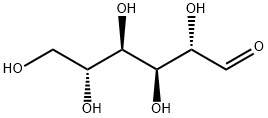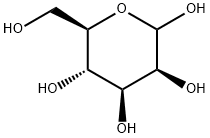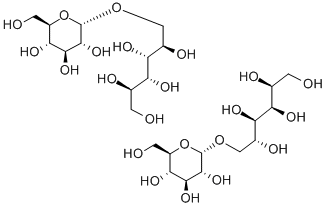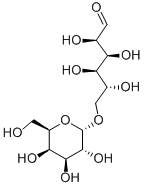L(+)-Rhamnose monohydrate
- CAS NO.:10030-85-0
- Empirical Formula: C6H14O6
- Molecular Weight: 182.17
- MDL number: MFCD00149363
- EINECS: 600-058-2
- SAFETY DATA SHEET (SDS)
- Update Date: 2025-01-27 09:38:02

What is L(+)-Rhamnose monohydrate?
Chemical properties
White crystals or crystalline powder
The Uses of L(+)-Rhamnose monohydrate
Composition of plum leaf polysaccharides.
The Uses of L(+)-Rhamnose monohydrate
L-Rhamnose monohydrate is a deoxy sugar in plants and bacteria. It is a component of plant cell walls that helps maintain structure. L-Rhamnose monohydrate is used as a starting material for the production of furanones. It is an important material involved in the reaction of flavors developed during the preparation of various foods like bread, grilled meats, etc.
The Uses of L(+)-Rhamnose monohydrate
L-Rhamnose monohydrate is a deoxy sugar found in plants and bacteria.
What are the applications of Application
L-Rhamnose monohydrate is a deoxy sugar found in plants and bacteria
Biological Functions
L-Rhamnose is a part of plant cell wall polysaccharides, rhamnogalacturonan I and rhamnogalacturonan.It is also present in bacterial cell walland a major antigenic determinant contributing to its pathogenicity.L-rhamnose is non-absorbable in humans but is fermented by intestinal microbes. Supplementation of L-rhamnose slows down gastric emptying. L-rhamnose monosaccharide conjugated immunogens have applications in cancer immunotherapies. Intake of L-rhamnose elevates serum propionate levels.
L-Rhamnose monohydrate has been used:
in biofilm enhancement assay in S.pneumonia.
as a sugar drink in humans undergoing intestinal barrier permeability test.
for the standard curve generation in high performance liquid chromatography(HPLC).
General Description
L-Rhamnose is a part of plant cell wall polysaccharides, rhamnogalacturonan I and rhamnogalacturonan. It is also present in bacterial cell walland a major antigenic determinant contributing to its pathogenicity. L-rhamnose is non-absorbable in humans but is fermented by intestinal microbes. Supplementation of L-rhamnose slows down gastric emptying. L-rhamnose monosaccharide conjugated immunogens have applications in cancer immunotherapies. Intake of L-rhamnose elevates serum propionate levels.
Purification Methods
Crystallise the rhamnose from H2O or EtOH. It crystallises easily as the monohydrate by evaporating a solution in MeOH (90%) and H2O (10%). It is also purified by dissolving in a small volume of EtOH, adding a few drops of H2O and cooling. 1H NMR in D2O at 44o contains 60% -pyranose and 40% -pyranose forms [Angyal Adv Carbohydr Chem 42 15 1984.] [Smith J Chem Soc 1035 1940, McGeachin & Beevers Acta Cryst 10 227,230 197, Beilstein 1 IV 4261.]
Properties of L(+)-Rhamnose monohydrate
| Melting point: | 90-95 °C(lit.) |
| alpha | 8.2 º (c=4.5,H2O) |
| Density | 1.47 |
| storage temp. | Inert atmosphere,Room Temperature |
| solubility | H2O: 0.1 g/mL, clear, colorless |
| form | Crystals or Crystalline Powder |
| color | White |
| Odor | Odorless |
| PH Range | 7.8 - 8.6 |
| optical activity | [α]20/D +8±0.5°, 2 hr, c = 5% in H2O |
| Water Solubility | 300 g/L (20 ºC) |
| Merck | 14,8172 |
| BRN | 5988592 |
| Stability: | Stable at RT |
| CAS DataBase Reference | 10030-85-0(CAS DataBase Reference) |
Safety information for L(+)-Rhamnose monohydrate
| Signal word | Warning |
| Pictogram(s) |
 Exclamation Mark Irritant GHS07 |
| GHS Hazard Statements |
H315:Skin corrosion/irritation H319:Serious eye damage/eye irritation H335:Specific target organ toxicity, single exposure;Respiratory tract irritation |
| Precautionary Statement Codes |
P261:Avoid breathing dust/fume/gas/mist/vapours/spray. P305+P351+P338:IF IN EYES: Rinse cautiously with water for several minutes. Remove contact lenses, if present and easy to do. Continuerinsing. |
Computed Descriptors for L(+)-Rhamnose monohydrate
| InChIKey | BNRKZHXOBMEUGK-FGASXDGJSA-N |
L(+)-Rhamnose monohydrate manufacturer
New Products
3-Iodophenylacetic acid 3-Pyridineacetonitrile, α-hydroxy- 2-Propanamine, 1-chloro-, hydrochloride (9CI) 3-(hexyloxy)-4-(pyridin-3-yl)-1,2,5-thiadiazole 2-Hexyn-1-ol Dibenzo-18-crown-6 Nickel(II) perchlorate hexahydrate, 98% 4-Bromophenylacetonitrile, 95% 3-Bromo-4-fluoroaniline, 97% Sodium tetraborate decahydrate, 98% Palladium(II) acetate, trimer, Pd 99% 4-Bromo-2-chlorotoluene, 97% N N Dimethylformamide Dimethyl Acetal (Dmf Dma) 2,3-Dichloro Benzoyl Cyanide [Side Chain] Bis(2-Chloroethyl) Amine Hydrochloride L-Glutamic Acid Diethyl Ester Hydrochloride 5-(Difluoromethoxy)-2-Mercaptobenzimidazole 1-Ethyl-3-(3-Dimethylaminopropyl)-Carbodiimide Hydrochloride [EDC Hcl] 1,4-Napthoquinone Bromoiodomethane Sodium Bicarbonate Methylene Dichloride (MDC) Ethyl Acetate Indole-3-Carbinol (I3C)Related products of tetrahydrofuran








You may like
-
 L-Rhamnose CAS 10030-85-0View Details
L-Rhamnose CAS 10030-85-0View Details
10030-85-0 -
 L-(+)-Rhamnose Monohydrate CAS 10030-85-0View Details
L-(+)-Rhamnose Monohydrate CAS 10030-85-0View Details
10030-85-0 -
 L-Rhamnose Monohydrate extrapure CAS 10030-85-0View Details
L-Rhamnose Monohydrate extrapure CAS 10030-85-0View Details
10030-85-0 -
 L( )-Rhamnose monohydrate 98% CAS 10030-85-0View Details
L( )-Rhamnose monohydrate 98% CAS 10030-85-0View Details
10030-85-0 -
 L (+) RHAMNOSE MONOHYDRATE For Biochemistry CAS 10030-85-0View Details
L (+) RHAMNOSE MONOHYDRATE For Biochemistry CAS 10030-85-0View Details
10030-85-0 -
 L-Rhamnose monohydrate CAS 10030-85-0View Details
L-Rhamnose monohydrate CAS 10030-85-0View Details
10030-85-0 -
 L-Rhamnose monohydrate CAS 10030-85-0View Details
L-Rhamnose monohydrate CAS 10030-85-0View Details
10030-85-0 -
 L-Rhamnose monohydrate CAS 10030-85-0View Details
L-Rhamnose monohydrate CAS 10030-85-0View Details
10030-85-0
